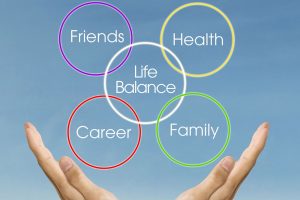The concept of work-life balance is being threatened with the advent of Covid-19. The uncertainty caused by the pandemic has led many economies around the world to shut down, and has also impacted how we work. Many people now work remotely and have continually found it difficult to ‘balance’ work and other activities.
Over the years, definitions of work-life balance have always focused on the ‘absence of conflict’ between professional and personal domains. This has changed.
According to a research on the “Impact of working from home on the work-life balance of marketers during the Coronavirus pandemic in the United Kingdom (UK) in 2020”, 73% of respondents believe they are more efficient when working from home. Another 68% believe they work more hours from home, while 25% believe that working from home will intrude on their personal life.
From the foregoing, we can see that the world of work is changing in these uncertain times, and it is impacting the way we work. It also reinforces the position eminent scholars like Stewart Friedman (a Professor of the prestigious Wharton School, University of Pennsylvania), who believes that “balance is bunk”. He opined that the concept of work-life balance is a misguided metaphor that assumes we must always make trade-offs among the four main aspects of our lives: work or school, home or family, community (friends, neighbours, religious or social groups), and self (mind, body, spirit).

According to Professor Stewart Friedman, a more realistic goal than balance is to better integrate work and the rest of life in a way that ensures four-way wins, which leads to improved performance in all four dimensions.
So, instead of trade-offs, think synergies. You can gain more by combining aspects of life often deliberately quarantined from each other. Working from home or working remotely has further reinforced the need to integrate these aspects of our lives. It is becoming increasingly difficult to distinguish between official and family/personal time since you’re home anyway. So integration is vital, and in this context, it is seen as “when attitudes in one role positively spill over into another role, or when experiences in one role serve as resources that enrich another role in one’s life”.
Therefore, in the new normal, work-life integration allows us to throw away the idea of being “perfect” parents or partners, and instead work on being open, honest, and even vulnerable.
Also, we need to realise that Covid-19 has changed personal and work dynamics dramatically. There is a need to let go of the mental model of thinking of work-time and home-time as being distinct and separate blocks.
By Tonye Preghafi
(Divisional Managing Director, Red Star Support Services; a Division under Red Star Express Plc)